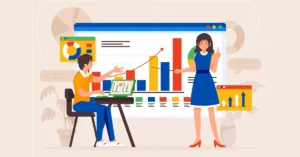ⓘ Featured image: Freepik
Trade skills are valuable things for a reason. Most people don’t know how to fix their pipes or rewire their lights, which means if they need to do those things, they’ll have to rely on tradespeople with the skills they need. This is why learning a trade can be a brilliant way to start your own business, assuming you do it right.
1. Deciding on a Trade
The first step in your path to starting a trade business is to decide on the trade you want to be dealing in. Over time, you might decide to add more trades and more tradespeople to your company, but when you’re first starting out, it’s best to start small, and that means you need to settle on a trade.
a. Consider Your Options
Fortunately, you have a wide variety of trade skills to choose from. Be sure to take some time and think your decision through. After all, you don’t want to end up dealing in a trade that you don’t enjoy or can’t even market well. If you’re at a loss, maybe have a look around and see if you can figure out which trade skills are in short supply.
b. Utilize E-Learning Resources
Once you have settled on a trade you are interested in learning, the next thing to do is to, well, learn it. There are plenty of ways you can go about doing this, but the most effective way is generally to just knuckle down and learn. E-Learning resources can be a great way to do this since there is so much useful information that you can take advantage of available online.
2. Equipping Yourself
One of the most important things you can do to ensure that you are ready to start your business is to get the right equipment. Companies like Tradefix Direct are a brilliant resource for this because they have a wide range of products and are able to send your orders right to you, meaning you can get everything you need from one place. Once you have the equipment, you can focus on getting your skills down and starting your new business up.
3. Establishing Your Business
Finally, once you know what you are doing, you can start taking steps to establish your new business. There are plenty of elements to creating a new business that you are going to want to engage with properly to be sure that you get off the ground without a hitch, but once your new business has some momentum, you are sure to go far. Make sure you know all about company registration so your business will be legal and ready to go!
a. Spread the Word
The most important thing you can do to help your new business find some traction is to ensure that you are spreading the word. Marketing is incredibly important to the birth of a business. After all, if nobody knows about your business, how could you possibly hope to succeed. So, once your business is a go, be sure to take some time out to spread the word. You won’t regret it.






